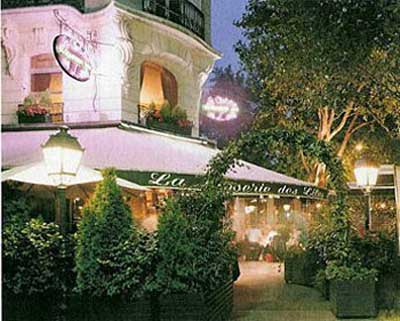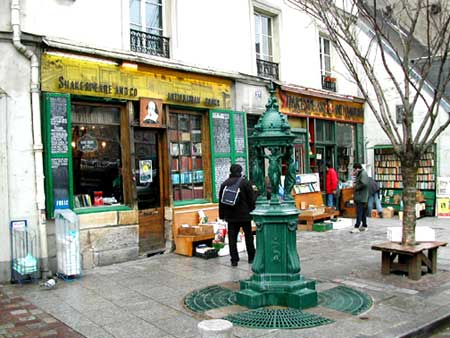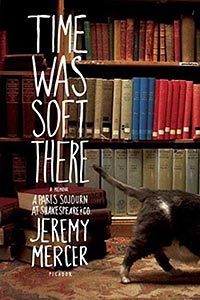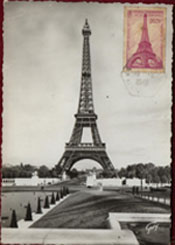“If you are lucky enough to have lived in Paris as a young man, then wherever you go for the rest of your life, it stays with you, for Paris is a moveable feast.”
 Begun in the autumn of 1957 and published posthumously in 1964, Ernest Hemingway’s A Moveable Feast captures what it meant to be young and poor and writing in Paris during the 1920s. A Moveable Feast is considered by many to contain some of his best writing.
Begun in the autumn of 1957 and published posthumously in 1964, Ernest Hemingway’s A Moveable Feast captures what it meant to be young and poor and writing in Paris during the 1920s. A Moveable Feast is considered by many to contain some of his best writing.
A correspondent for the Toronto Star, Hemingway arrived in Paris in 1921 with his young wife, Hadley, and baby son, Bumby (John), and the ambition to be a great writer. In that small tranquil world there was no need for a formal introduction. Everybody frequented the same cafés and ate in the same restaurants. Acquaintances were easily made and in a very short time Hemingway knew everyone who was someone÷or destined to be.
This was three years after the trauma of the Great War and at the beginning of the transformation of Europe’s cultural landscape: Braque and Picasso were experimenting with cubist forms; James Joyce, long living in self-imposed exile from his native Dublin, had just completed Ulysses; Gertrude Stein held court at 27 rue de Fleurus, and deemed young Ernest a member of une génération perdue; and T.S. Eliot was a bank clerk in London.
According to Hemingway, there was nothing lost about his generation. There was no movement, nor any tight bands of pot-smoking nihilists wandering around looking for a cause. There were a lot of people of the same age who had been through the war, and they came to Paris to write or compose or do whatever they had in mind. Paris gave them the freedom they needed.
His territory ran the length of the Boulevard Montparnasse from the Closerie des Lilas at the Observatoire to the Restaurant du Petit Trianon opposite the railway station, and by one route or another down to Saint Germain-des-Prés and the Seine.

Among these small, reflective sketches are unforgettable encounters with the members of Hemingway’s rag-tag circle of artists and writers, some also fated to achieve fame and glory, others to fall into obscurity. Some of the prominent people to make an appearance in the book include Aleister Crowley, Ezra Pound, F. Scott Fitzgerald, Ford Madox Ford, Hilaire Belloc, John Dos Passos, James Joyce and Gertrude Stein.
Hemingway spends a great deal of time in the cafes, drinking and eating rather well for a pittance. His kindest comments are about Sylvia Beach, the American who ran an English bookstore called Shakespeare and Company — it was a hangout for English-speaking authors and others, and was an oasis for individuals seeking English-language books.
 He depicts his genteel poverty and his obsession with gambling on horse races. He is deeply in love for most of the book with Hadley, who loses all of his manuscripts at a train station. He courts influential people such as Ford Madox Ford, who is described very unfavourably, and has great admiration for war veterans. His artist friend Pascin invites him to share his models, but he declines.
He depicts his genteel poverty and his obsession with gambling on horse races. He is deeply in love for most of the book with Hadley, who loses all of his manuscripts at a train station. He courts influential people such as Ford Madox Ford, who is described very unfavourably, and has great admiration for war veterans. His artist friend Pascin invites him to share his models, but he declines.
His friend Ezra Pound is trying to get up a collection for T. S. Eliot to rescue him from mundane bank work. He teaches Pound boxing. He cuts off his friendship with Gertrude Stein, repulsed by her lesbian relationship with Alice B. Toklas. He debates the merits of Dostoevsky with poet Evan Shipman. Ezra Pound charges him with delivering opium to the addicted poet Ralph Dunning, but Dunning rejects the help. Hemingway devotes three chapters to the very annoying F. Scott Fitzgerald and his hawkish and manipulative wife Zelda.
In the bittersweet final chapter, he describes an idyllic time spent in the Austrian Alps with Hadley. Pauline Pfeiffer arrives and an affair develops which eventually destroys his marriage.
It was during these years that the as-of-yet unpublished young writer gathered the material for his first novel, The Sun Also Rises, and the subsequent masterpieces that followed.
“You belong to me and all Paris belongs to me and I belong to this notebook and this pencil.”
This is the Paris that Hemingway knew as a young man – a map drawn in his distinct prose of the streets and cafés and bookshops that made up the city where he, as a young writer, sometimes struggling against the cold and hunger of near poverty, honed the skills of his craft.


 Mercer’s visit to Paris was not entirely of his own choosing. In 1999, Mercer was a young crime reporter for the Ottawa Citizen, with a couple of true crime books under his belt. Unfortunately, he had indiscreetly outed one of his contacts and, after receiving a threatening note and experiencing a break-in, he fled for his life. He ended up in Paris, penniless.
Mercer’s visit to Paris was not entirely of his own choosing. In 1999, Mercer was a young crime reporter for the Ottawa Citizen, with a couple of true crime books under his belt. Unfortunately, he had indiscreetly outed one of his contacts and, after receiving a threatening note and experiencing a break-in, he fled for his life. He ended up in Paris, penniless.